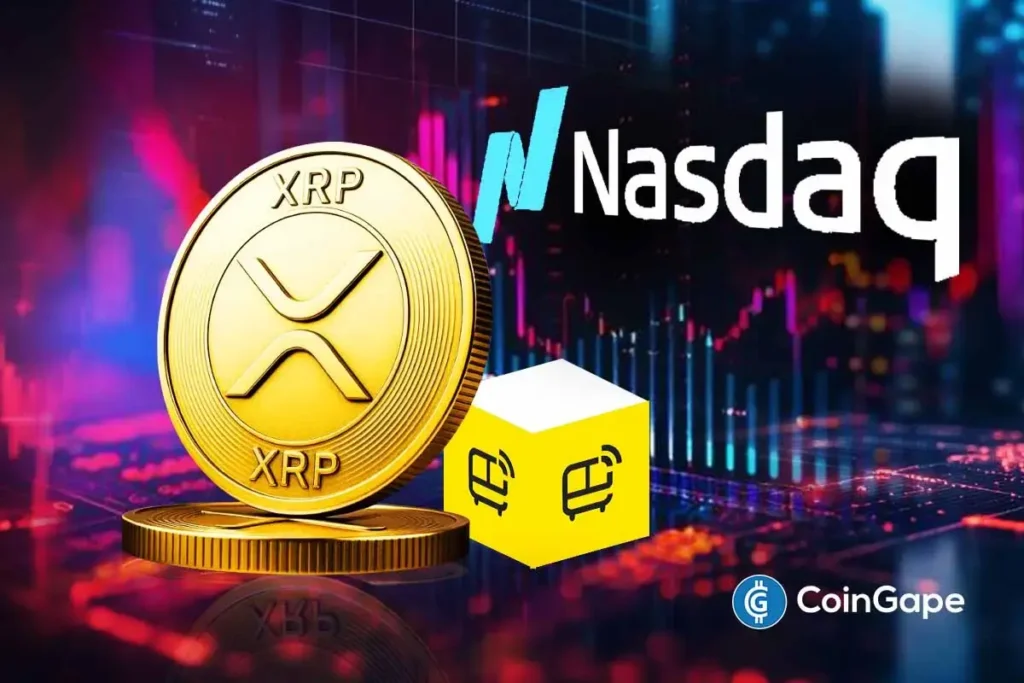Webus Integrates XRP: Transforming the Loyalty Market with Tokenized Travel Rewards
Introduction to Webus’ Innovative Plans
Nasdaq-listed Webus has recently made headlines by announcing a groundbreaking initiative to leverage XRP settlement in its forthcoming tokenized travel rewards exchange. This strategic move aims to penetrate the lucrative $20 billion loyalty market, creating a dynamic platform for travelers to redeem and convert loyalty points across airlines, hotels, and mobility networks. By incorporating the XRP stablecoin into its operations, Webus is setting the stage for a revolutionary shift in how rewards are managed and redeemed in the travel sector.
The Vision of Webus International
Webus International is on a mission to unify the global loyalty landscape by harnessing blockchain technology. As explained by CEO Nan Zheng, the integration of XRP settlement will facilitate instant, cost-effective, and borderless reward redemptions. This vision not only promises enhanced liquidity in the loyalty market but also aims to streamline the process for consumers who struggle to utilize their rewards efficiently. The phased rollout of this platform, pending regulatory approval, signifies Webus’ commitment to fostering a comprehensive travel rewards ecosystem.
Regulatory Developments and SEC Filings
In a recent update, crypto lawyer Bill Morgan revealed that Webus has lodged a filing with the SEC to establish its tokenized travel reward exchange. This development is particularly notable, as regulatory compliance is crucial for the success of new blockchain initiatives. The SEC filing indicates that Webus is taking the necessary steps to ensure its operations align with existing regulatory frameworks, paving the way for a transparent and trustworthy platform. Additionally, pilot programs are set for evaluation in key markets such as North America and Asia, showcasing Webus’s strategic approach to testing and scaling its services.
The Ripple Effect: XRP’s Growing Institutional Adoption
Webus’s partnership with Samara Alpha Management LLC, which aims to manage up to $300 million in Ripple tokens, further solidifies the integration of XRP in treasury operations. This trend reflects a broader pattern of institutional adoption within the cryptocurrency space. Collectively, XRP treasuries have surpassed $11.5 billion, fueling confidence in its real-world utility and value. This rising trend of incorporating XRP into corporate holdings highlights its potential as a pivotal asset in the financial ecosystem.
Technical Innovations within the XRPL Ecosystem
Ripple’s broader ecosystem has also been expanding, with recent advancements such as the launch of the Multi-Purpose Token (MPT) standard. This protocol simplifies the tokenization of real-world assets, eliminating the need for complex smart contracts while incorporating vital compliance features like KYC and AML controls. Institutions are increasingly recognizing the benefits of utilizing stablecoins and tokenized assets within decentralized finance (DeFi), with the XRPL processing over $1 billion in stablecoin transactions monthly. As the platform ranks among the top ten blockchains for asset tokenization, the momentum surrounding XRP continues to gain traction.
The Future of Loyalty Programs and XRP’s Role
As the travel industry evolves, the integration of technologies like blockchain and cryptocurrency will reshape loyalty programs. Webus’s innovative approach to utilizing XRP for its travel rewards exchange can set a precedent, not just for travel-related rewards but for loyalty programs across various sectors. With increasing institutional interest—highlighted by $61.6 million in investments over recent weeks—XRP is positioned to revolutionize how rewards are earned, redeemed, and managed across the globe. Business segments like the CME Group further reflect this growing interest through their introduction of micro futures and options products for both Solana and Ripple, marking a significant milestone for institutional adoption.
Conclusion: A New Era for Travel Rewards
In summary, Webus’s integration of XRP into its tokenized travel rewards exchange is more than just a novel concept; it’s a harbinger of change within the loyalty market. By focusing on liquidity, transparency, and interoperability, Webus is poised to transform the way consumers interact with their rewards. As pilot programs launch and regulatory approvals unfold, the future looks promising for both Webus and XRP. The initiative could potentially redefine loyalty programs worldwide, paving the way for a blockchain-driven ecosystem where travel rewards are seamless, efficient, and universally accessible.


